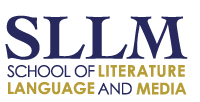Selected Topic III (Psycholinguistics) – LING3008 (1A)
The aim of this module is to explore one of the most rapidly expanding fields of sociolinguistic research, namely the study of Linguistic Landscapes. The first part of the module will focus on early research on language in public spaces. Here we will be looking at the ways in which the presence or absence of specific languages is the manifestation of specific language policy processes. In the second part of the module we will consider the so-called ‘move to discourse’ in Linguistic Landscape research, looking in particular at the meaning-making processes in through linguistic and visual means in public texts.
Morphology and Syntax - LING3003 (2A)
We focus on two closely linked Linguistics subfields: syntax and morphology. In the syntax part of the course, we look at the rules and principles that determine the architecture of phrases and sentences in human language and discuss contemporary analyses of a variety of phenomena. The morphology section addresses the major topics, such as the derivation, inflection and compounding of words, and the interaction between syntax and word-formation.
Phonology - LING3005 (2A)
This module covers core research topics from theoretical phonology. We investigate in detail the sound patterns — both segmental and suprasegmental from different theoretical paradigms, including generative and declarative models. We pursue the scientific description and modelling of universal and language-particular local and non-local phonological patterns, focusing on the parameters of what constitutes a possible human phonology.
Sociolinguistics – LING3009 (1A)
This module focuses on one of the most important sub-discipline in Sociolinguistics research and the Social Sciences more broadly: discourse studies. The course is divided into three parts: 1) First, we will go over the theoretical background on the notion of discourse and how it allows for the study of language in use; 2) second, we will look into the methodology of Critical Discourse Analysis and its focus on the investigation of power, inequality and discrimination; 3) Thirdly, we will add a multimodal aspect to discourse, focusing mainly on semiotics, visual culture and “What does language look like?”.
Although the course gives a fair amount of theoretical information, it focuses on methodological perspectives and aims to train students to analyse texts, dialogues, media and visual data.



